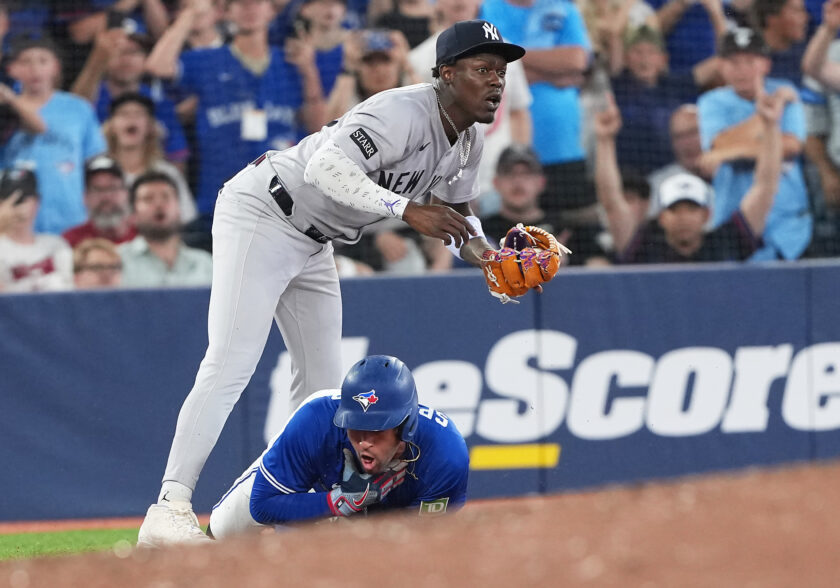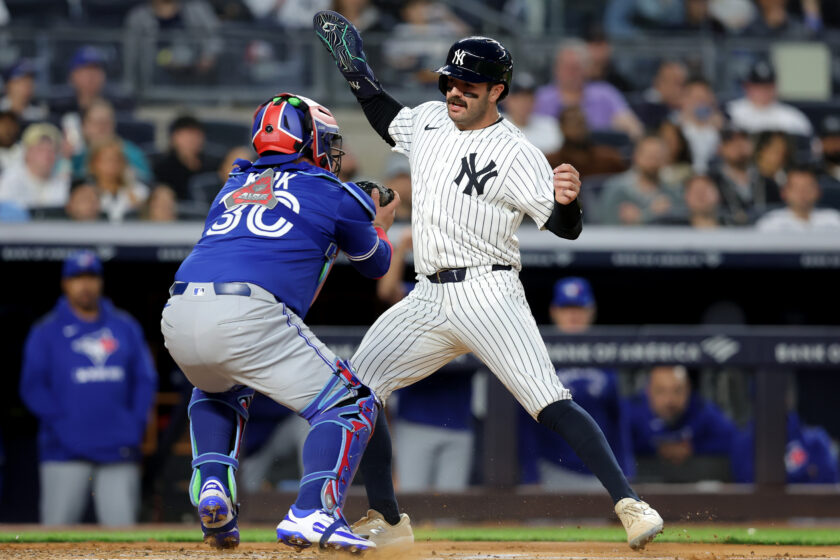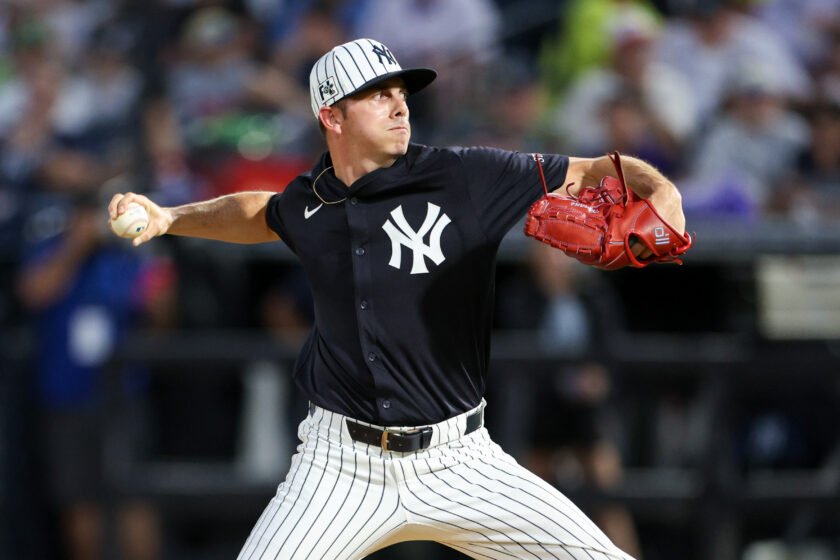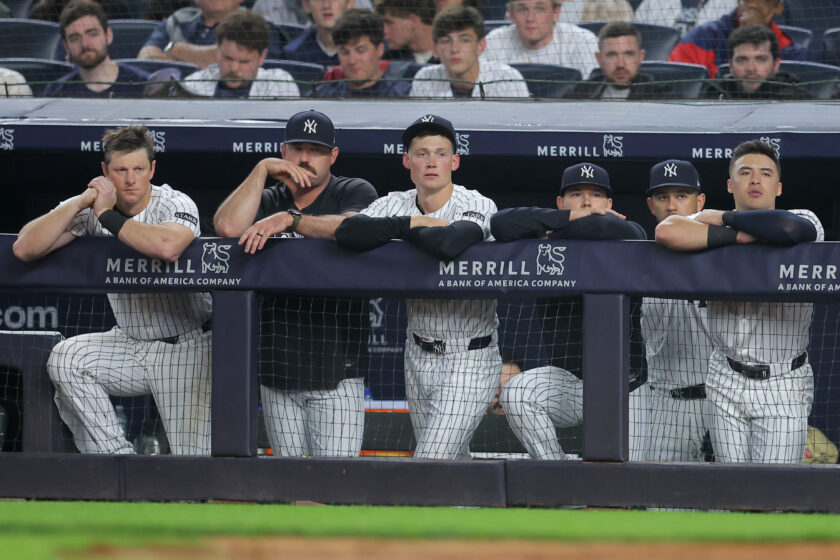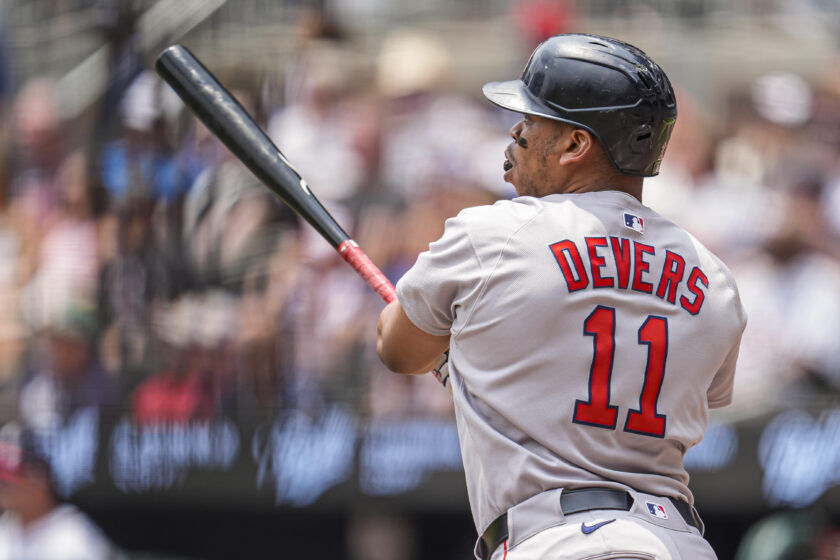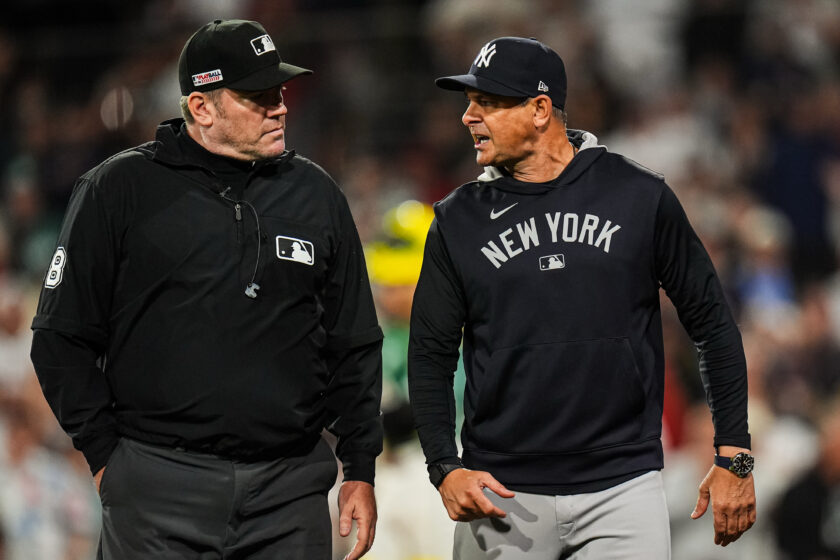Why Aroldis Chapman doesn’t hinder New York Yankees’ rebuild
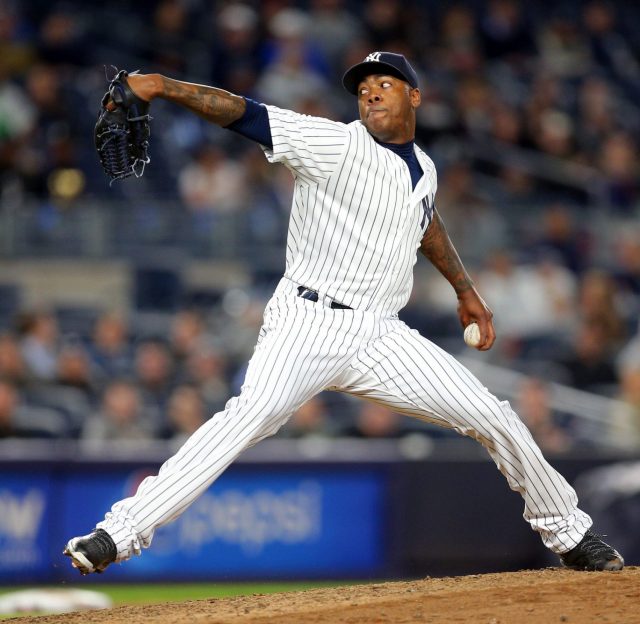
With the recent signing of Aroldis Chapman, many individuals are bringing the New York Yankees’ rebuild into question.
The reactions to the Aroldis Chapman signing have been quite interesting.
[sc name=”Yankees Link Related” link=”https://elitesportsny.com/2016/12/09/new-york-yankees-takeaways-2016-winter-meetings/” text=”Takeaways from the 2016 Winter Meetings” ]Some love it, some hate it, some think it’s too much money while some believe it throws the New York Yankees rebuild completely off course.
Sure, it does bring in Brian Cashman’s quest to “stay in it” into question, as Chapman is nothing more than a luxury compared to a need like a starter, but the idea to bring the Cuban Missle back to the Bronx fits everything they’re trying to achieve in the long run.
Chapman’s $15 million plus his $6 million signing bonus for 2017 and Matt Holliday’s contract gives the Yankees a total payroll of $170.1 million, including the $26.5 million owed to Alex Rodriguez and Brian McCann. [sc name=”Yankees Center Right” ]
Having seven arbitration-eligible players makes getting beneath the threshold unlikely but even with Chapman on the books in 2018, that goal may finally happen when the threshold number rises to $197 million.
Because following the 2017 season, the contracts of Rodriguez and CC Sabathia (combined $46 million) will be shed. Holliday’s $13 million will come off as well.
The signing of Chapman plus Dellin Betances provides the Yankees with a potent bullpen combo for at least three seasons, including the 2019 campaign, when they are presumed to be dangerous contenders after resetting their luxury tax and spending big on a free agent market that may feature Manny Machado, Josh Donaldson, Bryce Harper and Clayton Kershaw.
Barring any flare out — which, if you comprehend how Chapman pitches, is unlikely — the signing of the fastest pitcher in baseball plays right into to Cashman’s plan to stay in it and shed payroll to compete in two years.
To be exact, the only aspect of Chapman’s signing that may hurt New York relates to his setup man, Dellin Betances.
[sc name=”Yankees Center 2″ ]If the 6-foot-8 righty proves his last September was nothing but a fluke, the cost of his services will likely be too much to pay both he and Chapman by the time Betances hits the market in 2020 — when New York will be in prime World Series contention.
The criticism of this deal, however, comes down to this: the Yankees just handed out the most expensive contract to a closer in the history of the game by $24 million and it’s already regrettable because this team is not built for a championship run.
Yes, the Yankees are two or three years away from a World Series. But how does the signing of Aroldis Chapman slow down the track to that title competition?
Not only is the reliever with the most strikeouts since 2011 a difference maker with the ability to shut games down, but he doesn’t slow any “Baby Bomber” down as New York assesses young talent and could be the closer for the Yankees’ team that takes home their 28th title.
Sure, Betances slides down to the eighth, but there is no highly touted closer making their way up and it sends the message to the young kids coming up that the team is attempting to win this year. In other words, there is no bowing down and accepting a 100-loss season.
That message does wonders for guys like Gary Sanchez, Greg Bird and Aaron Judge who realize that if they pan out and have excellent seasons, the Yankees will have a greater year than writers, like myself, are giving them credit for.[sc name=”Fanly Small” ]
I didn’t even mention the fact that Tyler Clippard now leads a wave of a much advanced middle relief unit that can accommodate a questionable rotation.
So, for the writers who keep stating that Cashman and co. actually had a bad time at the Winter Meetings, the Chapman signing bodes well for them now while not doing a single thing to slow down the Baby Bomber hype train.
[sc name=”Yankees Link Next” link=”https://elitesportsny.com/2016/12/09/does-a-new-york-yankees-ivan-nova-reunion-make-sense/” text=”Does a New York Yankees, Ivan Nova reunion make sense?” ] [sc name=”Yankees Center 2″ ][sc name=”Kouroupakis Footer” ]
Christian Kouroupakis covers the New York Yankees and is the Editorial Director for ESNY. Interact with him and view his daily work by “liking” his facebook page and follow him on Twitter. All statistics are courtesy of Baseball Reference.com unless otherwise noted. Don’t hesitate to shoot him an email with any questions, criticisms, or concerns.

